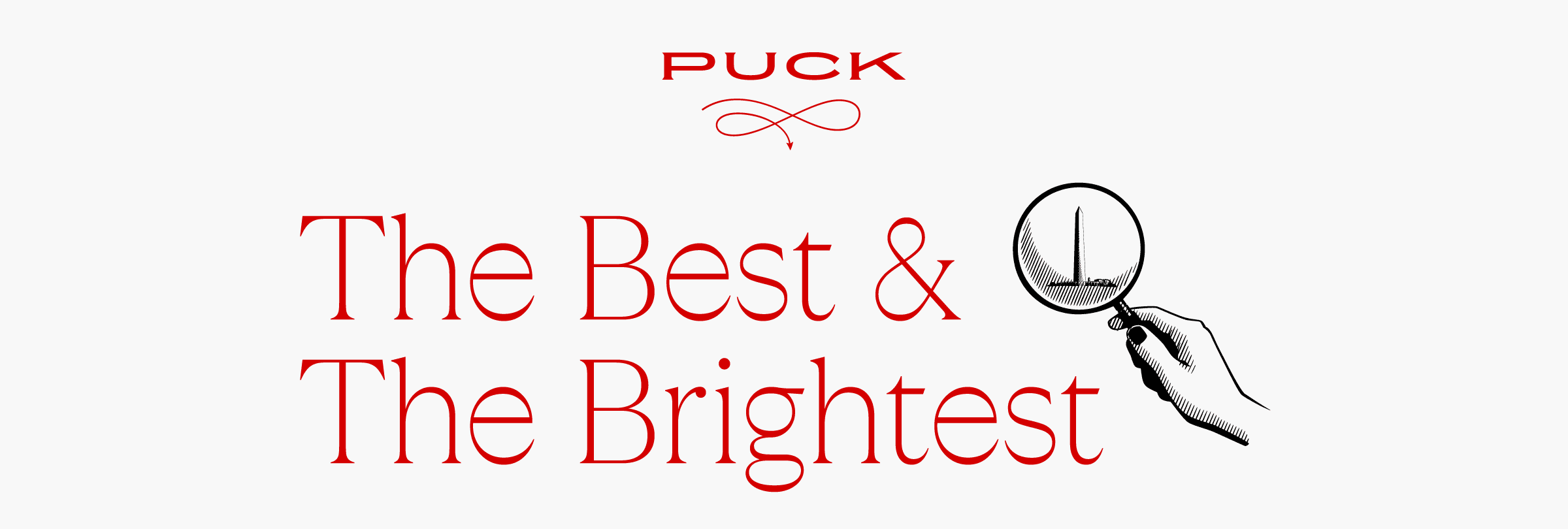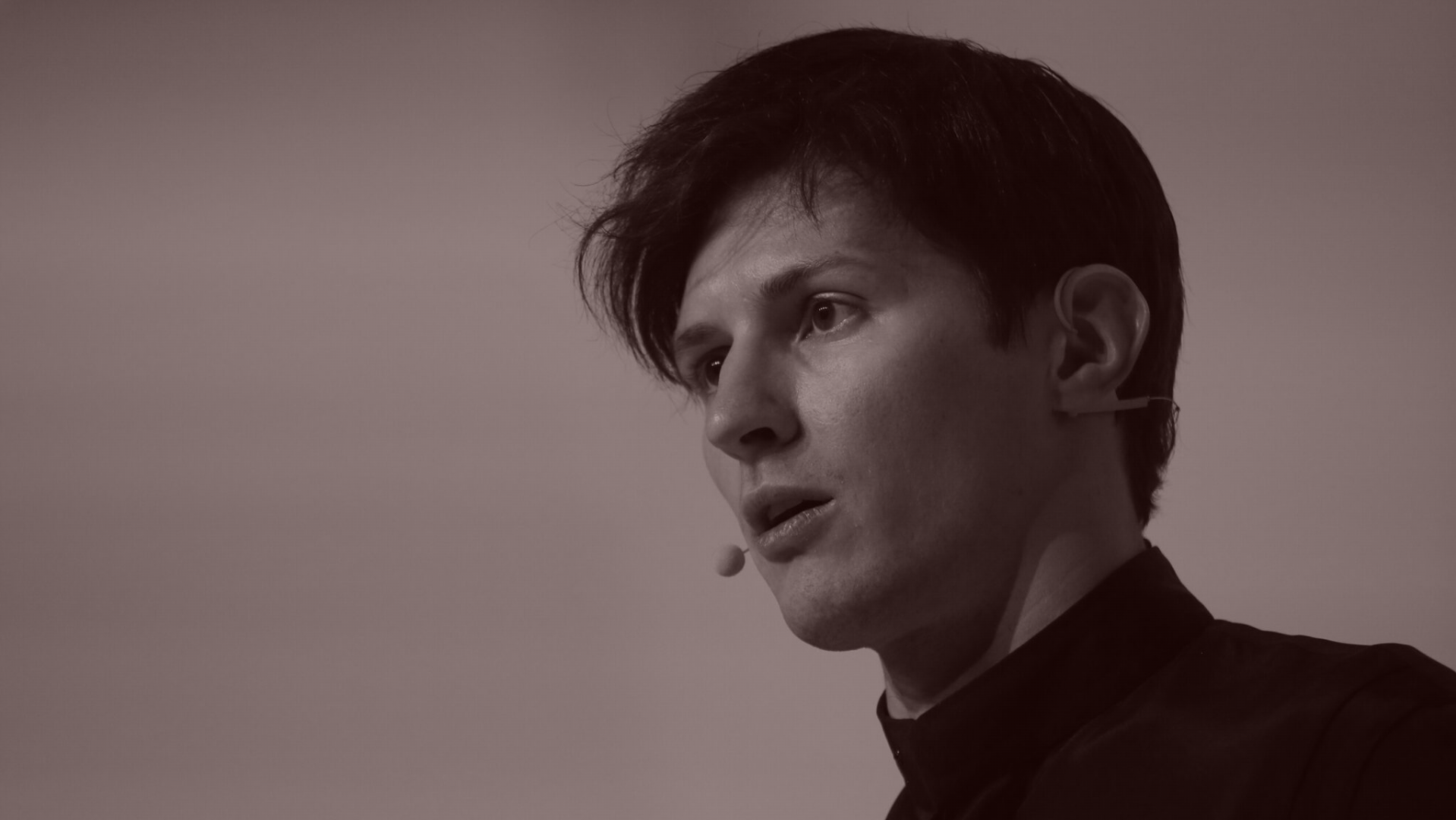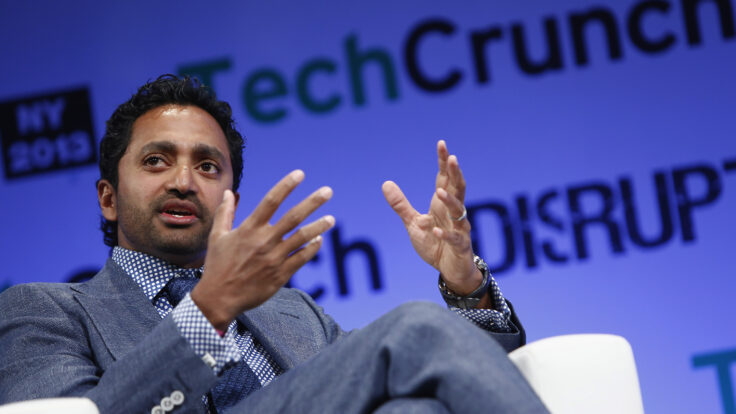 |
 |
|
Hello, and welcome back to The Best & The Brightest, your dispatch on all things politics. It’s Foreign Policy Wednesday (we’ve shifted a day because of Labor Day), and I am, as ever, your host Julia Ioffe.
Before we get to the meat and potatoes of today’s dispatch—is Telegram founder Pavel Durov cooperating with… the F.S.B.?—two juicy stories dropped today. First, Mikhail Khodorkovsky’s Dossier Center released an investigation into the lives of the two young sons that Vladimir Putin allegedly shares with his apparent lover for the last two decades, Olympic rhythmic gymnastics champion Alina Kabayeva. The two boys—Ivan, 9, and Vladimir, 5—live in isolation with their mother and a vast staff of governesses, tutors, and coaches at the president’s palace in Valdai, one of Putin’s favorite spots in Russia, northwest of Moscow. The details of their upbringing (here’s a summary in English) remind me of the childhood memoirs of Russians who grew up as part of the pre-Revolutionary aristocracy in St. Petersburg. It’s a little too on-the-nose that a kid from the Leningrad slums has been working so hard to re-create this experience for his own family.
Second story: The D.O.J.’s indictment of two RT employees for their efforts to spread disinformation ahead of the 2024 presidential elections. The indictment points to an American company that received $10 million to publish pro-Russian content online. The description of the company seems to exactly match one that employs ultra-conservative influencers like Benny Johnson and Dave Rubin. If you’re surprised by the nexus of the Kremlin’s influence operations and American right-wingers, you need to catch up on your TBTB. I wrote back in April that the Russian government has been very clear that these kinds of people—resentful, white Republicans—were its prime targets.
Now, here’s Abby Livingston’s report on the Hill’s profound pre-debate anxieties…
|
|
A MESSAGE FROM OUR SPONSOR
|
 |
| You work hard to provide the essentials for your family. We are honored to do the same. America’s freight railroads transport just about everything. The device you’re using? Diapers for your kids? And the food in your dog’s bowl? All were likely on a train at some point.
As a key link in the supply chain, we help move about 59 tons of goods per American every year. That’s a lot of precious cargo. To move your essentials safely, we invest about $23 billion annually to maintain and improve our infrastructure. These ongoing investments earned the highest grade for infrastructure in the last two American Society of Civil Engineers’ report cards. And it’s one of the reasons why freight rail remains the safest and most fuel-efficient way to move your most important stuff. Learn how freight rail works.
|
|
|
| Congress’ Post-Summer Blues |
|
| After a historically tumultuous summer, the political class is approaching a fall political season rife with historic uncertainty. Top operatives from both parties are stuck in a holding pattern, awaiting results from private polling and trying to feverishly plan for the scenarios that could result from next Tuesday’s Harris–Trump debate. Indeed, the Hill is bristling with anticipation, correctly assuming that the candidates’ performances could have enormous down-ballot impact.
Post-summer polling will also be rolling in around the night of the debate, adding another headache-inducing tactical wrinkle to their grand strategies. The consultants I’ve spoken with have unequivocally stated that this is the most turbulent work environment they’ve ever encountered—and that, at this juncture, the ability to improvise and adapt has become essential. “There is an angst that you might need to tweak or change directions on a variety of issues,” a Republican consultant told me. “Imagine having already cut a number of ads and developed a cohesive message strategy, only for survey results to show the entire dynamic of the campaign has changed on a dime. Some Republicans have already learned that lesson in the past few weeks, and it’s likely more will experience it in the next week or so.”
The first tremors will probably surface in House polling—particularly head-to-head matchups.—and those results will likely be the focus of knitting-circle gossip during votes in both chambers next week, even as Congress focuses on avoiding an October shutdown. Beyond that, of course, the data will have the most demonstrable impact on decisions regarding which television markets to invest in, especially those covering multiple competitive districts. Over the course of a couple weeks, after all, operatives and PACs are going to have to figure out if they are playing offense or defense… or simply pulling out of a TV market entirely—a practice that’s become less common in recent cycles.
In any event, the confluence of these polls and the outcome of the debate will have seismic and fairly immediate consequences, forcing committees and super PACs to choose how to allocate money between races in the same markets (Philly, Detroit, San Antonio, Portland, etcetera). Leadership-aligned political arms will almost always favor incumbents over challengers, but they’ll also have to consider the possibility of strategically pulling ads to deploy the capital elsewhere. In other words, there are a zillion things to figure out, many of them related, and yet so much of it will be based on information that won’t be available for a week or so.
|
 |
| A Game of Telegram |
| Ever since his arrest in Paris, Telegram founder Pavel Durov has become an unlikely free-speech martyr, somehow uniting both Navalny supporters and the Kremlin in their praise of him. And yet, the truth about Durov’s actions appears to be at odds with the legend. |
|
|
|
| Last week, I wrote to you about how the Russian opposition and the Kremlin came together to defend Telegram founder Pavel Durov following his arrest in Paris on charges that he essentially abetted the rampant trafficking in weapons, drugs, and child sexual-abuse material that takes place on his messaging app. (He was later released on bail.) Perhaps for the first time since Russia’s full-scale invasion of Ukraine, the government of Vladimir Putin and those trying to overthrow it agreed on something: Durov was a free-speech warrior, and his detention by the French government was an assault on that essential freedom by a hypocritical West.
I got some interesting responses to that piece, including from sources here in the States who agreed with my perspective that Durov was far from a champion of free speech, and that those defending him didn’t quite understand the values they claimed to be fighting for. But they additionally raised an interesting question based on an evolving theory: How could Durov be a champion of free speech when he seemed to have been cooperating with the F.S.B. for years? So… I decided to look into it.
“There’s no smoking gun, but there’s a lot of smoke,” said Dmitri Alperovitch, one of the co-founders of CrowdStrike, the company that caught the Russian security services rooting around in the D.N.C. servers in 2016. (Alperovitch now runs the Silverado Accelerator, a think tank in D.C.) His concerns were echoed by other specialists and activists I spoke with who are familiar with this space. Durov is “no privacy activist,” said Sarkis Darbinyan, an I.T. lawyer who founded Roskomsvoboda, a Russian digital-rights N.G.O. that has since earned the label of “foreign agent” from the Kremlin. “He’s a digital pirate.”
After all, unlike WhatsApp and Signal, which Durov has criticized mercilessly, Telegram does not have end-to-end encryption—which is what keeps messages secure and stored on your phone, as opposed to a company server that could theoretically be accessed by a government entity—enabled on chats by default. Telegram users have to manually opt in by starting a separate, “secret chat.” Of course, not everyone knows how to do that, or that doing it is the only way to secure their conversation. In fact, only about 4 or 5 percent of Telegram users take advantage of the “secret chat” function, according to estimates that various experts shared with me. Moreover, end-to-end encryption is not available at all for group chats—which is where a lot of planning, including by the Russian opposition, goes on.
That doesn’t necessarily mean that the chats are transparent and the F.S.B. is actively reading them. The content, however, is sitting unencrypted on Telegram’s servers, where it can be accessed by hackers or, really, anyone who knows how to request the information. Indeed, Telegram has an A.P.I., or application programming interface, that allows someone to download the content of any Telegram channel, even one where they aren’t a member. This can’t be done without an encryption key—but, conveniently, a key can be procured through a simple text message.
That’s not exactly a heavy lift for the Russian security services, noted Christo Grozev, a legendary investigator now with The Insider, an independent Russian media organization. “The F.S.B. completely controls the Russian telecoms,” he told me. Because Russian law gives the F.S.B. so much power, the security service can simply copy a SIM card, ask for and and intercept the text message containing the key on its way to the Telegram user they’re targeting. “They can hijack Telegram accounts, and they can read them,” Grozev explained. What’s worse, the chat logs apparently include the entire history, including messages and images that a user has deleted or set to disappear after a certain amount of time. “The question is, why was it built?” Alperovitch asked of the A.P.I. “This A.P.I. looks a lot like lawful interception.”
The fact that Durov continues to trash Signal and WhatsApp while luring people to Telegram with promises of superior security makes many furious. “I’ve always had a serious concern about the inherent safety of Telegram, and a serious problem with how it’s marketed by Durov,” Grozev told me. “A secure messaging platform, it is not.”
|
|
A MESSAGE FROM OUR SPONSOR
|
 |
| Nearly everything you care about was on a train at some point. Take the camera you use to capture family memories. It was likely brought to you by a freight train.
Our cameras make sure your cameras arrive safely. America’s freight railroads use high-speed cameras and machine vision to identify potential issues that would go unseen by the human eye. Train inspection portals use cameras that can capture 40,000 images… per second. All while the train is moving at 60 MPH. With this technology, railroaders can spot and resolve issues faster. Every year, the nation’s largest freight railroads invest about $23 billion back into our network in advanced technology and infrastructure upgrades. It’s one reason why freight rail is the safest and most fuel-efficient way to move your most important stuff across the country. Learn how freight rail works.
|
|
|
|
|
| To hear Durov tell it, he came up with the concept for Telegram in 2012, as the Russian police were smashing in his door for his refusal to take down the pages of opposition activists who were using the social media network he invented, VKontakte (VK), to plot that winter’s pro-democracy protests. While the officers hammered away, he realized he had no secure way of contacting his brother, or anyone really—et voilà, Telegram was born.
Durov managed to withstand the Russian government’s pressure to shut down the opposition on VK in 2012, but he was powerless to stop the Kremlin in 2013-14, when pro-Western protests were raging on the Maidan in Kyiv and the Russian authorities demanded he turn over information on the protestors. He refused, losing his company as a result. Soon after, Durov announced that he’d left Russia for good.
But in 2018, the Kremlin came after him again, threatening to shut down Telegram inside Russia unless Durov gave the F.S.B. the app’s encryption keys. Durov refused, and the Russian authorities began blocking access to the app. They did so ham-fistedly, blocking so many I.P. addresses that they also shut down important banking and government services websites. Durov, who called on I.T. specialists across the country to help him, deployed all kinds of tech tricks to keep Telegram operational and free of Kremlin control, thus cementing his folk hero status with the opposition.
The Russian government pressed on—until the spring of 2020, when it appeared to suddenly stop. Durov, who was living abroad, had been trying to monetize Telegram by launching TON, or Telegram Open Network, a blockchain platform with its own cryptocurrency. He raised $1.2 billion from investors. In 2019, however, the S.E.C. charged Telegram with failing to register the cryptocurrency and misappropriating funds. Durov, who was forced to return the capital to investors and pay an $18.5 million civil penalty, abandoned the project in May 2020.
The same month that Durov walked away from TON, the Russian parliament proposed that the ban on Telegram be lifted. Then VTB, a Russian state bank known colloquially as “the wallet of the F.S.B.,” volunteered to help Durov find investors and provided a whopping valuation for Telegram, stretching up to $124 billion. Kremlin communications watchdog Roskomnadzor, which had been throttling the app, announced it was dropping its attempts to block Telegram. In less than a year, Telegram had raised about $1 billion, including from a U.A.E.-Kremlin consortium.
In July of 2020, three weeks after the Russian government stopped blocking Telegram, Durov’s vice president appeared on a panel with Russian Prime Minister Mikhail Mishustin at a tech conference in Kazan, Russia. Everything seemed, quite suddenly, to be hunky-dory. A year later, Putin himself said that “we reached an agreement with Telegram. It is operational, and everything is fine.” Russia’s top propagandists and its state media companies began opening channels on Telegram and broadcasting their content on the app. “It suddenly stopped being seen as an enemy company,” said Grozev’s investigative partner and Insider founder Roman Dobrokhotov.
It was all very curious, as was the fact that no one knew the identity of Telegram’s new investors. In time, however, it turned out that one of them, according to Grozev and Dobrokhotov, was Jan Marsalek, an Austrian businessman who turned out to be a Russian asset cooperating with the F.S.B. and G.R.U. (He has since fled to Russia and is wanted by German authorities.) “It’s very suspicious, of course,” Dobrokhotov said.
A recent report in the Russian independent publication iStories has only added to the sense that something isn’t quite kosher. By obtaining access to an F.S.B. database, iStories was able to learn that Durov crossed the border into Russia repeatedly long after he’d said, in 2014, that he would never return. In fact, he’d returned 50 times—including on June 18, 2020, the same day the Russian authorities officially unblocked Telegram. This fact, in particular, stunned many in the Russian opposition, especially those who live in exile and would be unable to return to Russia without being arrested. “We can’t go a single time, and he went 50 times?!” Darbinyan exclaimed.
|
|
|
|
|
| So how, many wonder, did Durov get Telegram unblocked? “He sent them packing, but then something happened,” mused Andrei Soldatov, a Russian journalist and specialist on the Russian security services, as well as the author of The Red Web. “What the F.S.B. got in exchange for unblocking Telegram, we don’t know.”
But here, too, there is a lot of smoke. And where there is smoke, there are a lot of theories. “He doesn’t need to do anything that kills free speech [on Telegram], he just needs to keep things as they are” to satisfy the F.S.B., Grozev speculated. That is, just keep the A.P.I., keep the unencrypted default setting, and continue allowing the F.S.B. to spoof Russian numbers to download chat content. In other words, don’t take any steps to make the app more secure or more private—the very features Durov boasts about.
“This is the innocent version,” Grozev went on. “A much harsher version is the one given to me by my F.S.B. contacts when I talked to them on Telegram [after June 2020]. They immediately said, ‘Let’s switch to secret chat. We read all the unencrypted chats.’” Grozev had another telling story, one involving the Austrian Marsalek. “After meeting with the V.P. of Telegram, Marsalek told everyone in his company to switch to secret chats. Someone who was present there told me that,” said Grozev, adding that he was able to confirm this person’s geolocation and therefore believed their account.
Though no one knows what was in a potential deal between Durov and the Russian government in 2020, no one believes there wasn’t a deal, or that the Kremlin didn’t get something out of it. That’s just not how the Kremlin operates, especially not in the last few years, when the Russian government has been feeling its own strength in a big way. “It would be naive to consider that it happened without a negotiation,” said Grozev. “The question is what [the result of the negotiation] was. Even the most innocent hypothesis, which is, We leave it as it is; we let people believe it’s secure when it’s not—that is bad enough.”
Others wonder what Durov’s potential cooperation with the Kremlin means now, in light of the French charges and his refusal to cooperate with the French government. Durov has said that the only exception to his militantly libertarian stance against cooperating with governments is on questions of terrorism. He’s even said to have cooperated with the French on such issues.
But the problem is, in Russia, where the core of Telegram’s users live, “terrorism” has a new definition—namely, any act opposing Putin, his policies, and the war in Ukraine. It’s what scores of antiwar protestors, and plenty of regular Russians who have simply voiced their disagreement, have been charged with in recent years. In fact, when Alexey Navalny died, he was facing a new criminal case—on terrorism charges. And Durov has acted against Navalny before. During the 2021 Russian parliamentary elections, Telegram blocked bots from Navalny’s Smart Vote project, which had once helped defeat Kremlin incumbents across the country. It was a clear example of cooperating with the authorities, his libertarian philosophy be damned.
All of this taken together makes Durov’s skeptics marvel at the pristine reputation the tech billionaire has managed to maintain as a warrior for freedom of information—including, incredibly, among Navalny’s followers. “You’re not going to cooperate on child porn investigations, you’re not going to cooperate on drug trafficking investigations, but you’re going to cooperate on investigations of the Russian opposition?” Alperovich sneered. “That’s an interesting choice.”
|
|
|
| That’s all from me, friends. I’ll catch you back here on Tuesday, the day of the first debate between Kamala Harris and Donald Trump. Until then, good night. Tomorrow will be worse.
Julia
|
|
|
|
| FOUR STORIES WE’RE TALKING ABOUT |
 |
|
 |
| Carville & Matalin |
| The political spouses dish about Harris’s two-month sprint. |
| PETER HAMBY |
|
 |
| A Kristina Carol |
| On Kristina O’Neill’s new gig running Sotheby’s Magazine. |
| LAUREN SHERMAN |
|
 |
|
|
|

|
 |
|
|
|
Need help? Review our FAQs
page or contact
us for assistance. For brand partnerships, email ads@puck.news.
|
|
You received this email because you signed up to receive emails from Puck, or as part of your Puck account associated with . To stop receiving this newsletter and/or manage all your email preferences, click here.
|
|
Puck is published by Heat Media LLC. 227 W 17th St New York, NY 10011.
|
|
|
|




















